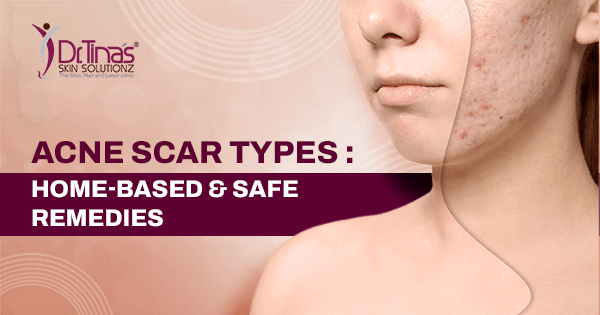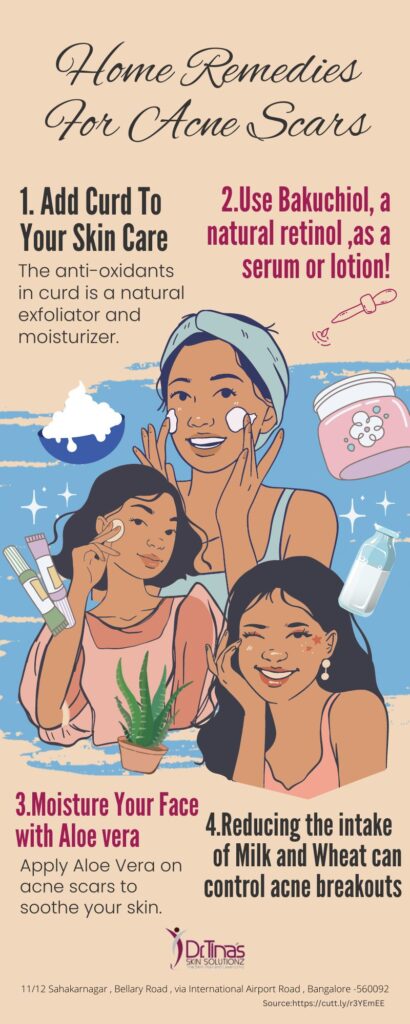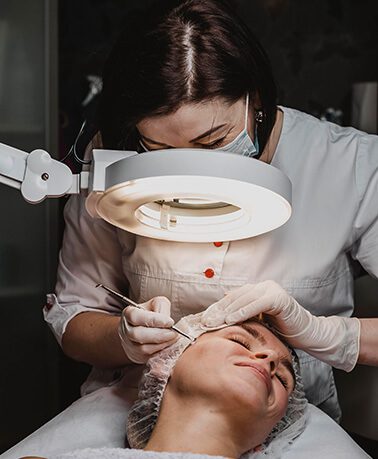Acne Scars Types and Their Easy & Safe Remedies

Pimples or acne is so common almost everyone would have experienced it either in teenage years or adult life .While some people experience mild pigmentation and/or scarring, some experience a tad bit more. If you can relate, worry not! Acne scar treatment in Bangalore offers many solutions to minimize and reduce the extent of scarring or even reduce it completely.
What Causes The Scars?
Acne forms because of the inflammation of the oil gland The pore leading from the oil gland also gets swollen and eventually breaks down. Inflammation of the skin leads to an increase in melanin cell production and pigmentation with a textural alteration to the skin. Pigmentation caused by acne typically heals on its own.
However, sometimes post-inflammatory pigmentation may require treatment to minimise the appearance. Acne scars is a term sometimes used for both colored scars or textured scars.
Textured scars or pits can be atrophic (shallow scars), hypertrophic & keloid (raised scars)
Easy Home Treatments for Acne Scars
Now that you know what causes acne, the most effective treatment options are to reduce and prevent inflammation. While most experts would say that home remedies have little to no effect in treating acne scars, here are some that can prevent and treat inflammation.
- Reduce the Intake of Milk and Wheat
You must have heard many celebrities going off dairy products. Well, they do have a reason. Dairy products, milk, in particular, contain whey and hormones like casein. This helps stimulate the growth hormones of calves (and humans) – inducing growth. However, the hormones in milk can sometimes mess up the hormones in the human body, causing inflammation and breakouts. Have you noticed that many people are gluten-free in terms of their dietary preferences? Wheat contains gluten, which is a potential gut irritant. So, if you feel your stomach irritated after eating a piece of bread or paratha, you know what to avoid during your meals.
- Apply Aloe Vera on Acne Spots Aloe vera can work wonders to soothe your skin and hair, and no wonder many self-care products today, have them. You can apply homegrown or store-bought aloe vera gel on active acne and acne scars.
Aloe vera has anti-bacterial anti-inflammatory properties and therefore is a handy and natural remedy to spot-treat breakouts. A compound called “aloesin” helps reduce hyperpigmentation caused by acne and sun damage.
[Remember: Some people can be allergic to aloe vera, and hence a patch test is recommended.]
- Apply Safe Home Remedies
Tomatoes are a core ingredient of Indian food. Did you think it was by chance? Tomatoes are not only delicious, but they are rich in lycopene – giving them a red hue. This compound lightens scars or pigmentation on the skin. Besides tomatoes are also acidic and have anti-oxidant properties in them, which work wonders for acne-prone skin. Tomatoes are also known to improve the texture the restore skin glow. Include it in your diet or apply it on the skin to witness the benefits of tomatoes. Other ingredients like turmeric do play a role but with precautions , since these active ingredients can irritate the skin.
Must Read- Is Laser Acne Scar Treatment Safe?
- Try Bakuchiol for Acne Scars
Retinoids have become synonymous with pigmentation treatment in the latest years. Retinols, a lighter version of retinoids, a vitamin A derivative – reduce the appearance of uneven skin tones, pigmentation, fine lines and wrinkles, and many other skin issues. Bakuchiol is a natural retinol, which is extracted from the Psoralea Corylifolia plants. Bakuchiol is milder and is popular for not being a skin irritant. Bakuchiol can be applied as a serum or lotion, as per your skincare routine.
- Add Curd to Your Diet and Skincare
Health enthusiasts know the importance of adding curd (or yogurt) to their diet. Curd is rich in antioxidants which improves gut health. It is also a prominent ingredient in home remedies for the skin. So how exactly does curd help? It is a great natural exfoliator and moisturiser while lightening acne scars and pigmentation. The lactic acid in curd acts as a great skin-brightening agent.
- Increase Intake of Probiotics and Whole Food Groups
Since now you know what to avoid diet-wise, there’s also something you can add for a healthier gut. Your gut health can be massively transformed by the intake of probiotics. What do they do? Probiotics help manage the microbe balance in the digestive system. They also strengthen and boost the body’s immunity levels. Including whole food groups in your daily diet not only will provide you with the necessary elements, but also can help with inflammation.
Foods with low glycemic index reduce the chances of irritation and inflammation, thereby lowering the chances of breaking out. Include food items like green vegetables, seasonal fruits, and oats for instance.
- Take Vitamin B6
Vitamin B6 is among the essentials that your skin needs to maintain healthy functioning. It is known to reduce sebum production when the daily intake is under control. As a result of which, the chances of inflammation also get reduced. Sources of Vitamin B6 include whole grains, nuts or legumes, bananas, and watermelon. Growing up, many teenagers experience hormonal acne. This often leaves extensive scarring on their face (and sometimes on the chest, arms, or back). Acne and its scars can severely affect their confidence and self-esteem in the formative years. Hence, treatments can help regain the lost confidence and ultimately feel better about oneself.
Acne scar treatment in Bangalore also includes medical procedures to minimize the appearance of prominent acne.


Dr.Tina Ramachander is one of the best dermatologist in Bangalore and Medical Director at Dr.Tina’s Skin Solutionz, a skin care clinic in Bangalore. She completed her master’s in dermatology from the well acclaimed JJM Medical college in Karnataka and is now a practicising dermatosurgeon and Medical Cosmetologist in Bangalore.

